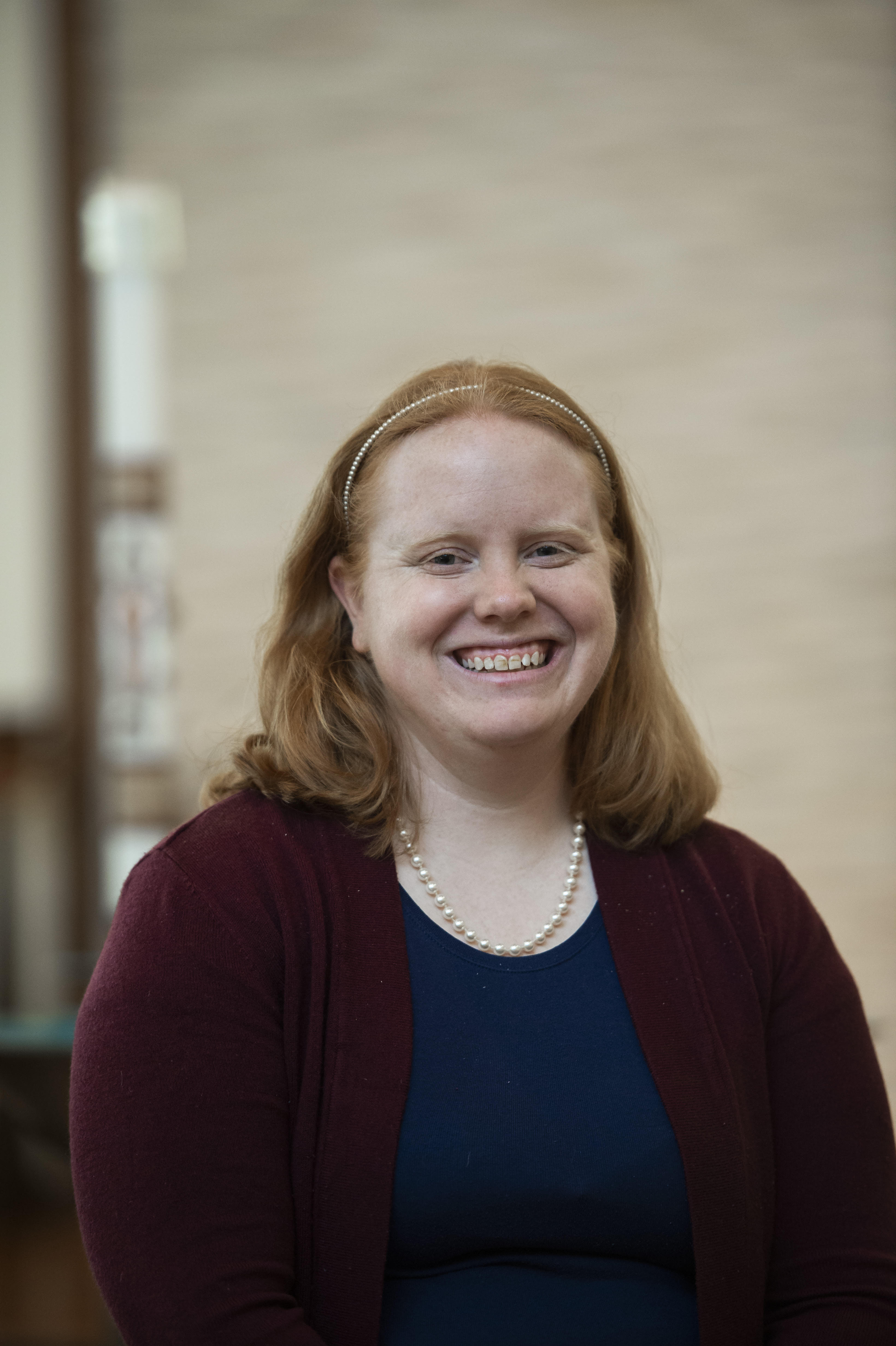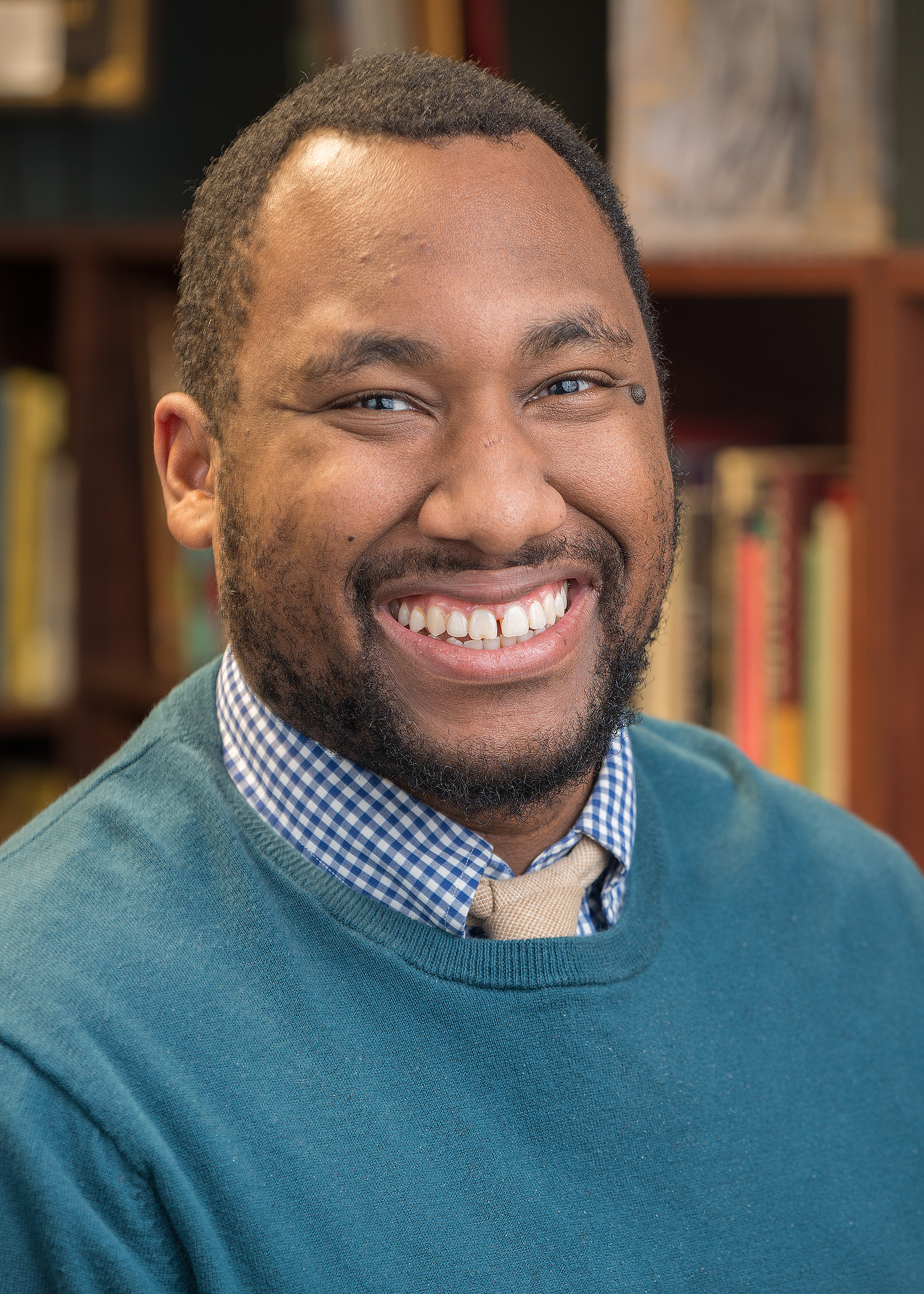Twelfth Sunday after Pentecost
Adult and Small Child
Allison Liles

The Rev. Allison Sandlin Liles is a wife, mother, peacemaker, and priest learning to navigate life in the suburban wilds of Dallas, Texas. After working as Episcopal Peace Fellowship’s Executive Director for six years, Allison has re-entered parish ministry in the Diocese of Fort Worth. She currently serves as the Priest-in-Charge of St Stephen’s Episcopal Church in Hurst, Texas and the editor of Grow Christians, a ministry of Forward Movement.
Read: Luke 14:1, 7-14
Reflect: Jesus regularly addresses the social, political, and religious norms of his day by challenging a practice society accepts, then offering an alternative that aligns more with the Reign of God. In this text, Jesus takes on the social code of dinner party seating arrangements. Typically, guests of higher status sit closest to their host, while people of less importance sit furthest away. When Jesus arrives at the house of a Pharisee leader, he first offers his fellow guests a bit of advice: don’t assume you are the most important person at the wedding banquet. You should always sit in the lowest place and wait to be asked to move to a more suitable location by your host. And then, Jesus shares some advice with his host: it’s better to invite people to dinner who can’t give anything to you in return than to invite people who will repay you with an invitation of their own.
This teaching is wholly countercultural at Jesus’ time, but aligns perfectly with the Reign of God. This is how God wants us to treat one another and it is how God already treats each one of us. God loves us, strengthens us, and nourishes us without the expectation of receiving something from us in return.
Respond: Spend time naming children you know who often seem left out. Talk about the importance of inviting them to play. Engage in a random act of kindness toward them by doing something kind without any expectation of it being reciprocated.
-Allison Liles
Adult and Elementary Victoria Hoppes is the Director of Youth and Children's Ministries at Resurrection Lutheran Church in Indianapolis, Indiana. She has ministry experience with youth, family, and camping programs at both the parish and diocesan levels. She holds degrees from Texas Lutheran University and Luther Seminary. She also holds a certificate in Youth and Family Ministry from Forma’s certificate program. You can follow Victoria on social media (@vlhoppes).Victoria Hoppes

Read: Hebrews 13:1-8, 15-16
Reflect: This reading from Hebrews encourages us to “let mutual love continue.” (Hebrews 13:1, NRSV) Specifically, we are told to be kind to people and show hospitality toward strangers. We don’t know when our kindness will have special meaning for someone, or will show them God’s love in a big way. And, when we provide hospitality to others, we are modeling the love of God: it is gracious, caring, and welcomes all people, no matter who they are.
There are many ways we can be kind and show hospitality toward others. It can be through a smile and an encouraging word. Or, we can invite someone to share a meal with us. We can even help someone with chores or other tasks. Sometimes, being kind and showing hospitality to others is easy; sometimes it is hard. It can be especially hard to show God’s love to someone who we barely know, or someone who is different than us.
Respond: Make a list of “random acts of kindness” that you can perform this week. These random acts of kindness should be ways to show kindness or hospitality toward other people. Pick two or three to try. Make an effort to perform these random acts of kindness toward people who you don’t know very well, or people with whom you may not spend a lot of time.
-Victoria Hoppes
How can you humbly love God and love others this week?
Adult and Youth Wallace Benton serves as the Assistant to the Rector for Youth Ministries at St. David's Episcopal Church in Roswell, GA. He's been fortunate to have grown up in the Episcopal Church and became interested in youth ministry after volunteering with his former youth program after college. Wallace has worked diocesan retreats and activities such as New Beginnings and Happening.
Currently, he is the lay director for New Beginnings in the Diocese of Atlanta. He is also a member of the Episcopal Youth Ministry in ATL podcast (which you should check out immediately!)
Wallace Benton

Read: Luke 14:1, 7-14
Reflect: Jesus attends a dinner party and tells them a parable commenting on social norms and expectations of the day. He points out how awkward it would be if you sat at an honorable place at the table and was asked to give up your seat to someone else. Instead, Jesus says to sit at the must humble seat, in case you are asked to move to a more honorable seat at the table. Also, Jesus talks about who to invite to a dinner and tells his host to invite those who cannot repay the host for they “will be blessed.”
Social statuses tend to be extremely hard to talk about, but it is a concept that everyone recognizes. Knowing where you are on the social ladder can be a focus for adults, just as much as youth. Jesus’ parable challenges us to be willing to humility or to allow ourselves to sit at a lower rung of the social ladder. Later, Jesus encourages us to invite or spend time with those who are less fortunate than us instead of the people who can “repay” us.
Respond: Reach out to a friend, parent, or trusted adult and have a discussion about the following: How can we practice humility and meekness at school, on our sports teams, clubs, and/or church youth group? How can we be “repaid” for being humble? What does that repayment look like?
-Wallace Benton
Adult and Adults Regina Heater (she/her/they is a self-avowed and practicing ecumenist, story-collector and story-sharer. A church administrator for a United Methodist Church in Northern NJ, she's exploring how administration, communication, faith formation and pastoral care all intersect in the church office. She often creates and posts #PrayersForDaysThatEndInY on the social internet. Connect with her at www.reginaheater.com.Regina Heater

Read: Jeremiah 2:4-13
Reflect: Idols. In the grand tradition of Hollywood epics, when I hear the word “idol” I think Giant Golden Calf, but I know that’s not precisely what an idol is. The Golden Calf is just a representation of the thing the Israelites are trying to connect to when they are feeling abandoned by God, even though God just brought them out of Egypt. The memory of that has already faded. By the time of Jeremiah, the memory of God’s saving acts have REALLY faded; they are mere stories, and the people are seeking something else, something that feels more real to them. They’ve disconnected from the living waters, and constructed cisterns that leak. Their connection to YHWH is failing, and it shows: the community is failing YHWH and each other.
In our hearts, we know that Jeremiah’s words are just as relevant to us as they are to Jeremiah’s contemporaries. We know the stories, we know the miracles, we know the rituals and prayers; we know that these things connect us to the Source of Life more than the things we rely on each day to fill us up and give us life. These idols leave us feeling empty, disconnected, and disillusioned, even as they lure us into believing that this is the way community and life just is these days. Jeremiah reaches through the ages to tell us it doesn’t have to be that way.
Respond: Consider the things that you engage each day that leave you disheartened and feeling disconnected from the Source of Life. Choose one and put it aside for this week. (It could be as simple as unfollowing an account on the social internet.)
-Regina Heater
Download a printable copy of this week's devotions HERE.
Tags: Lectionary Based Readings & Reflections / Latest Posts

